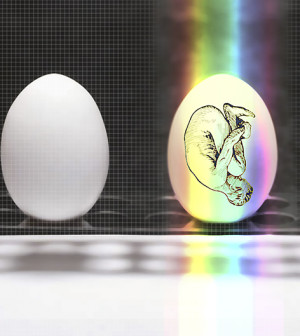- 8 Ways to Increase Dopamine Naturally
- 7 Best Breads for Maintaining Stable Blood Sugar
- Gelatin vs. Collagen: Which is Best for Skin, Nails, and Joints?
- The Long-Term Effects of Daily Turmeric Supplements on Liver Health
- Could Your Grocery Store Meat Be Causing Recurring UTIs?
- Are You Making This Expensive Thermostat Error This Winter?
- Recognizing the Signs of Hypothyroidism
- 10 Strategies to Overcome Insomnia
- Could Artificial Sweeteners Be Aging the Brain Faster?
- Techniques for Soothing Your Nervous System
For Many Women, Hot Flashes Last 10 Years or More After Menopause


Many women continue to have hot flashes for years after menopause, a new study finds.
Researchers looked at 255 older women and found that 80 percent of them had moderate-to-severe hot flashes during menopause, 17 percent had mild hot flashes and 3 percent had no hot flashes.
Obese white women and black women (whether obese or not) were most likely to have moderate-to-severe hot flashes, while non-obese white women had the lowest risk. Women who had more than a high school education had a 34 percent lower risk of hot flashes, a finding that calls for additional study, the University of Pennsylvania Perelman School of Medicine researchers said.
They also found that moderate-to-severe hot flashes continued for an average of nearly five years after menopause. And more than one-third of women had moderate-to-severe hot flashes for 10 years or more after menopause, according to the study published online this week in the journal Menopause.
Hormone replacement therapy is the primary medical treatment for hot flashes, according to the researchers. Current guidelines recommend that the treatment be used for no longer than five years. But the Penn researchers said there’s a lack of evidence to support the recommended three- to five-year limits on the use of hormone therapy.
They noted that concerns about health issues linked to hormone therapy — such as cancer and cardiovascular problems — make some doctors reluctant to prescribe it, or they stick to the recommended time limits on its use.
“Our findings point to the importance of individualized treatments that take into account each woman’s risks and benefits when selecting hormone or non-hormone therapy for menopausal symptoms,” study author Ellen Freeman, a research professor in the department of obstetrics and gynecology, said in a university news release.
“While leading non-hormone therapies such as Paxil or Escitalopram may provide some relief of menopausal symptoms for some women, for others, they may not be as effective as hormone-based therapy,” she added.
More information
The U.S. Office on Women’s Health has more about menopause.
Source: HealthDay
Copyright © 2026 HealthDay. All rights reserved.










